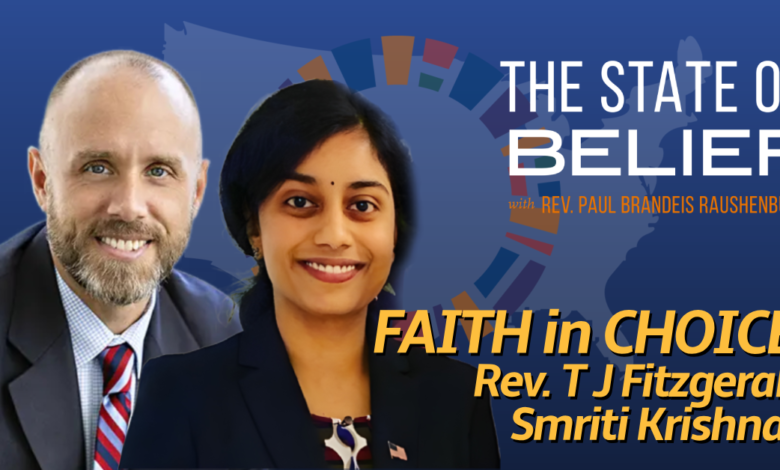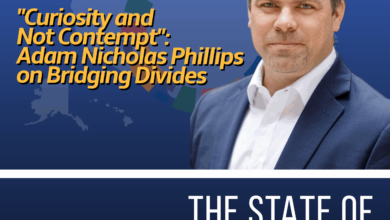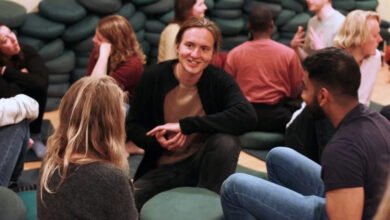Faith in Choice: Two Years After Dobbs

Often in the reproductive healthcare debate, the voice of the faithful gets portrayed only on one side – the side of those trying to restrict women’s autonomy and access to abortion. However, this does not portray the entire picture. There is a rich and storied history of people of faith coming together to collaborate to ensure access to healthcare, defend autonomy in the healthcare decision-making process, and protect abortion access.
Rev. T.J. Fitzgerald and Smriti Krishnan are both working to build cross-faith partnerships to preserve access to reproductive health care, especially in hostile states. This week on State of Belief, Interfaith Alliance’s weekly radio show and podcast, they join host Rev. Paul Brandeis Raushenbush to discuss cross-faith collaborations and partnerships to advance human rights, specifically reproductive rights and the health care decision-making process.
“Restricting anyone’s right to share that information with someone is unconscionable. It’s irreligious, in my opinion. It is not at the heart of Christianity. It is not at the heart of Islam. It is not at the heart of Hinduism, and it’s not at the heart of any of the great faiths of the world, certainly not of Judaism. […] And it’s called Truth Pregnancy Resource Center because Sojourner Truth said the truth is powerful and prevails. And we believe that sharing the truth with people and trusting people to do what they need to do for their family and their own health is central to what it means to be human, what it means to be a person of faith in this world.“
– Rev. T.J. Fitzgerald is the Minister of Care and Community Engagement at First Unitarian Church of Dallas, with a Master of Divinity from Yale. T.J. also has a law degree and practiced law before pursuing ministry. With this background, T.J. is well-equipped to stand at the intersection of faithful beliefs and partisan legal challenges to the fundamental values held by many in his home state of Texas around reproductive freedom.
“So how do we make decisions? We make decisions by turning to the people we trust. We might talk to our parents. We might talk to our friends. We might consult our spouse. We might consult our children, other close relatives, and we might also consult our faith leader. So when that faith leader has a particular text or a particular faith background that allows that individual to provide guidance to a person seeking reproductive health care, including abortion access, we can really see how much of a strong role that faith plays in that decision-making process.”
– Smriti Krishnan, attorney and graduate of the University of Alabama School of Law. She has served as a law fellow at the US Senate and a legislative assistant in the House. She currently is Legislative Counsel at the National Council of Jewish Women, where reproductive justice is both a matter of religious freedom and a fundamental human right. Smriti works on an interfaith basis to emphasize the narrative that people of faith do believe in abortion access and, more broadly, reproductive healthcare access. With a Hindu background and two immigrant parents, she prized the perspective instilled in her to consider the similarities that various faith traditions had: empathy, kindness, compassion, doing good for others, service, and education.
Source link





